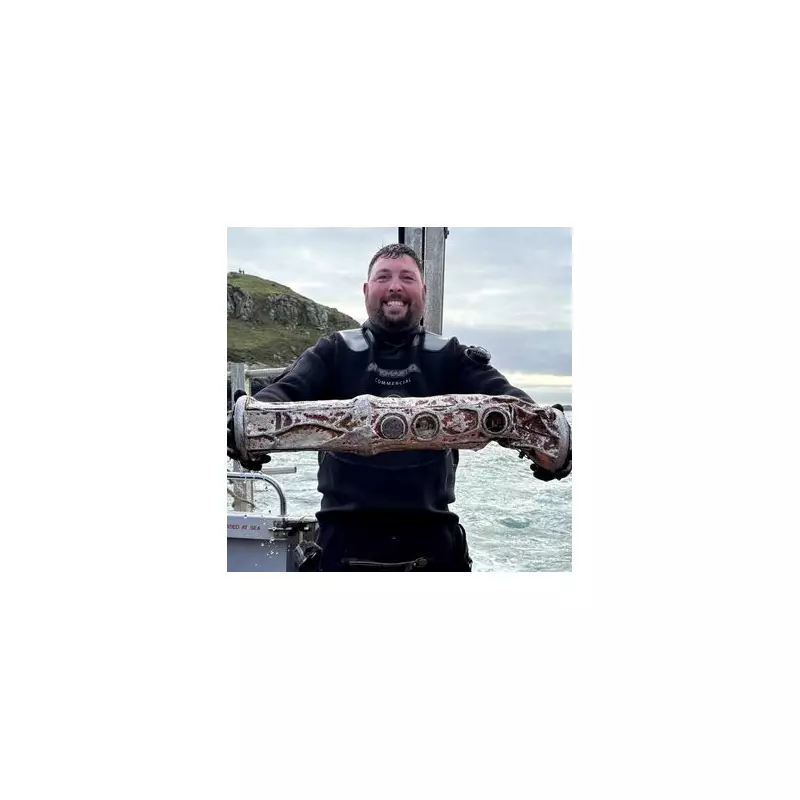
A suspected Russian submarine detection device has been discovered off the coast of Wales by a team of volunteer litter pickers, raising fresh concerns about Moscow's underwater activities in British waters.
Underwater Discovery
Divers from Neptune's Army of Rubbish Cleaners (NARC) made the startling find during a routine litter collection dive in the Skomer Marine Conservation Zone, Pembrokeshire. The suspicious object was initially mistaken for a navigational marker before being identified as potential military equipment.
Volunteer diver Tim Smith-Gosling discovered the device wedged in a gulley on November 15. The team reported their discovery to authorities, leading to further inspections involving the Port Authority Waterway.
Russian Equipment Identified
Independent defence analysts later examined the equipment and stated they were "confident" the object was a Russian RGB-1A sonobuoy - an acoustic monitoring device typically used to locate submarines.
The device measured approximately 50 inches in length and weighed 2.4 stone, described as being in a "battered" condition. The diving group confirmed they had never encountered anything similar during their underwater cleanup operations.
Growing Russian Naval Presence
This discovery comes amid increasing Russian naval activity around UK waters. The Ministry of Defence revealed that Russian activity around the UK has risen by 30% in the past two years.
Recent incidents include HMS Severn intercepting two Russian warships - the corvette RFN Stoikiy and tanker Yelnya - as they sailed through the Dover Strait into the English Channel. Monitoring duties were later handed over to a NATO ally off the coast of Brittany.
Defence Secretary John Healey issued a direct warning to Vladimir Putin after the Russian spy ship Yantar was spotted off the Scottish coast, describing its actions as "deeply dangerous".
"My message to Russia and to Putin is this: We see you. We know what you're doing, and if the Yantar travels south this week, we are ready," Healey stated.
The Royal Navy declined to comment on the specific find, with a spokesperson telling the BBC: "We do not comment on specific underwater activities or individual finds due to operational security considerations."
In response to British concerns, the Russian Embassy in London accused the UK government of "whipping up militaristic hysteria" and creating conditions for "new dangerous situations."






